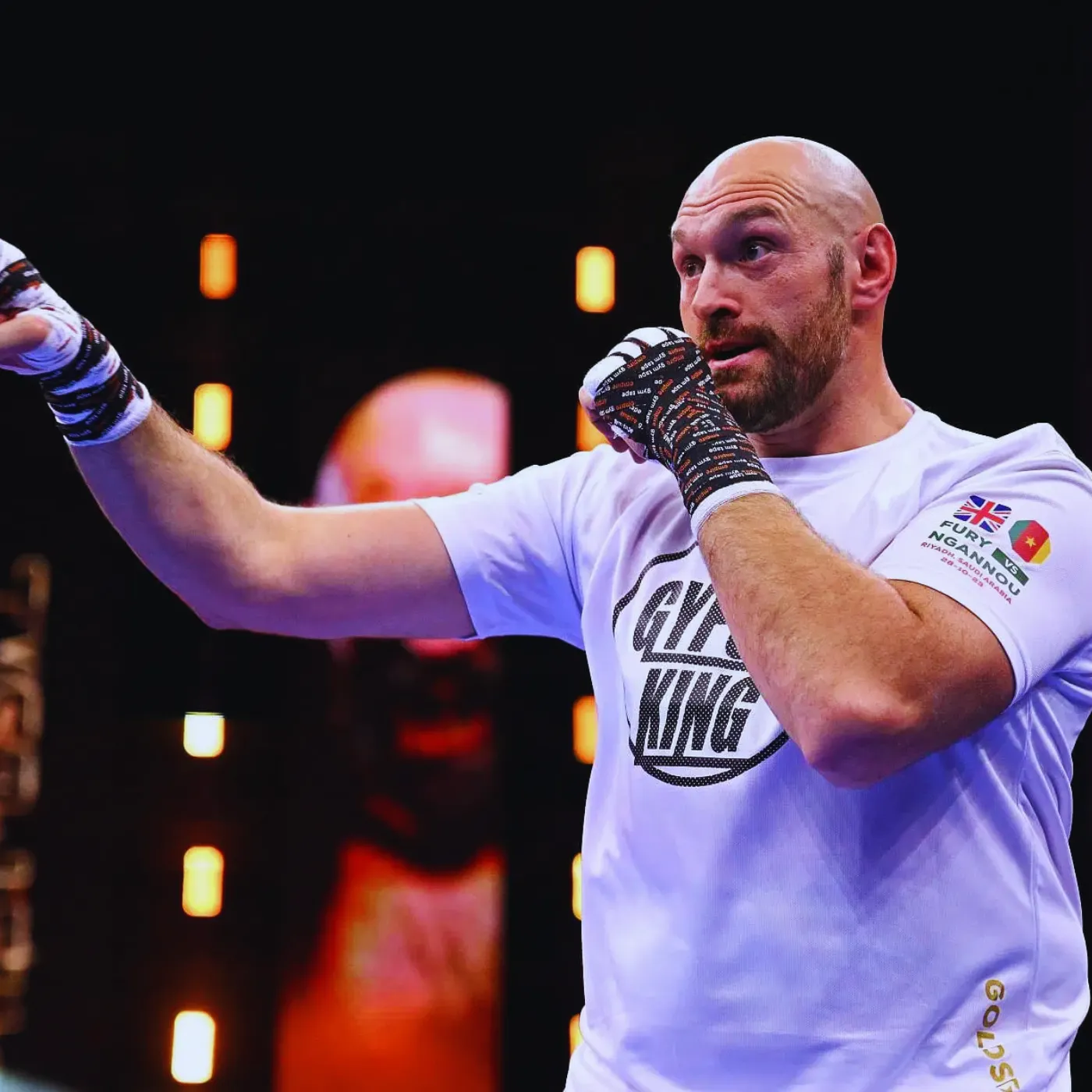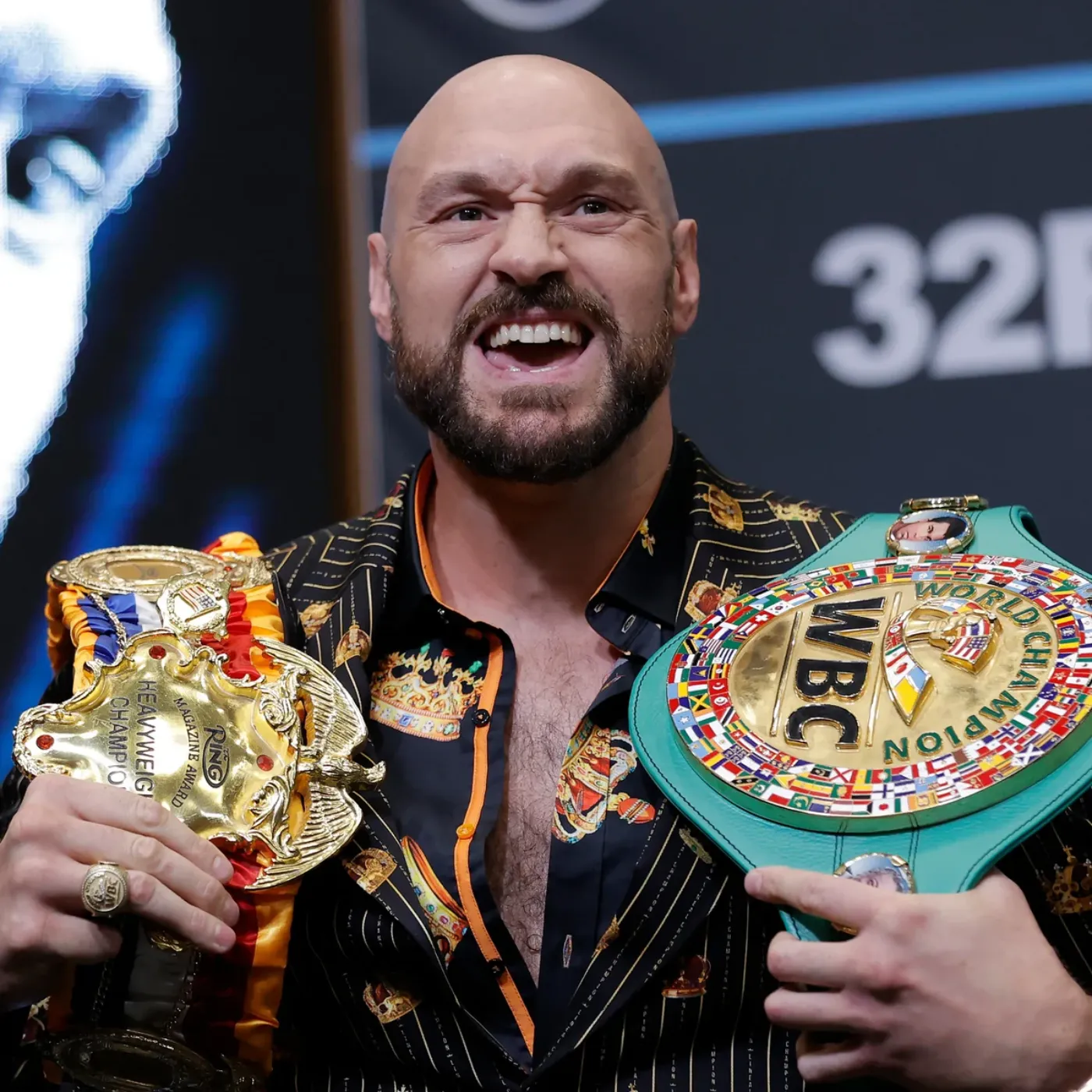Tyson Fury: The Overrated Gypsy King or True Boxing Royalty?

In the world of boxing, few names inspire as much debate and controversy as Tyson Fury. Known as the “Gypsy King,” Fury’s career has been a rollercoaster of triumphant highs, personal struggles, and polarizing opinions. But is he truly one of the greatest boxers of our time, or is his crown more myth than mastery? The answer might surprise you.
The Rise of the Gypsy King
From the beginning, Tyson Fury seemed destined for greatness. Born into a family with a storied boxing lineage, Fury was named after none other than the legendary Mike Tyson. At 6 feet 9 inches tall and boasting an 85-inch reach, Fury possesses a unique physicality that makes him a nightmare in the ring. His early career saw a string of dominant victories, culminating in a shocking upset against Wladimir Klitschko in 2015, where he claimed the unified heavyweight titles.

But Fury’s success wasn’t just about his physical attributes. His unorthodox style—a combination of slick footwork, sharp defensive skills, and an ability to adapt mid-fight—set him apart. Fans and critics alike hailed him as the man who could redefine heavyweight boxing. Yet, this meteoric rise was soon overshadowed by personal battles that would threaten to derail his career.
Fall From Grace: Overrated or Overwhelmed?
After defeating Klitschko, Fury’s life took a dark turn. Struggles with mental health, substance abuse, and significant weight gain kept him out of the ring for nearly three years. During this time, detractors began to question whether Fury’s victory over Klitschko was a fluke. Was he truly the boxing genius fans believed, or had he just caught an aging champion on an off night?

Critics argue that Fury’s record lacks depth. Beyond Klitschko and his thrilling trilogy with Deontay Wilder, some claim that his resume doesn’t hold up compared to past heavyweight greats. While the Wilder fights showcased Fury’s resilience and ring IQ, skeptics point out that Wilder’s own record is padded with lesser opponents.
Moreover, Fury’s larger-than-life personality—often a selling point for his fights—has also been a double-edged sword. His brash trash talk and controversial statements have drawn criticism, leading some to label him as more of a showman than a true champion.
Redemption or Reinvention?
Despite the setbacks, Fury’s comeback has been nothing short of remarkable. His return to the ring in 2018 was met with widespread skepticism, but he quickly silenced doubters. The first fight against Deontay Wilder ended in a dramatic draw, with Fury rising from a brutal 12th-round knockdown that seemed destined to end the bout. In the rematch, Fury delivered a masterclass, dominating Wilder to reclaim the WBC heavyweight title.

So, where does Fury stand in the pantheon of boxing greats? His supporters argue that his ability to overcome adversity—both inside and outside the ring—cements his legacy. They point to his adaptability, his unbeaten record, and his magnetic personality as evidence that he’s more than deserving of his “Gypsy King” moniker.
However, his critics remain unconvinced. They cite his inconsistency, relatively low number of title defenses, and lack of fights against other top heavyweights like Anthony Joshua and Oleksandr Usyk. For them, Fury’s reign feels incomplete—a tantalizing “what could have been” rather than a definitive statement of





